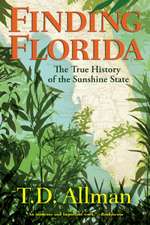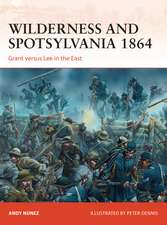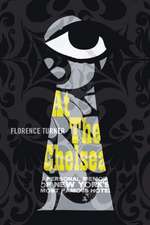Colonial Crucible: Empire in the Making of the Modern American State
Editat de Alfred W. McCoy, Francisco A. Scaranoen Limba Engleză Paperback – 27 mar 2009
At the end of the nineteenth century the United States swiftly occupied a string of small islands dotting the Caribbean and Western Pacific, from Puerto Rico and Cuba to Hawaii and the Philippines. Colonial Crucible: Empire in the Making of the Modern American State reveals how this experiment in direct territorial rule subtly but profoundly shaped U.S. policy and practice—both abroad and, crucially, at home. Edited by Alfred W. McCoy and Francisco A. Scarano, the essays in this volume show how the challenge of ruling such far-flung territories strained the U.S. state to its limits, creating both the need and the opportunity for bold social experiments not yet possible within the United States itself. Plunging Washington’s rudimentary bureaucracy into the white heat of nationalist revolution and imperial rivalry, colonialism was a crucible of change in American statecraft. From an expansion of the federal government to the creation of agile public-private networks for more effective global governance, U.S. empire produced far-reaching innovations.
Moving well beyond theory, this volume takes the next step, adding a fine-grained, empirical texture to the study of U.S. imperialism by analyzing its specific consequences. Across a broad range of institutions—policing and prisons, education, race relations, public health, law, the military, and environmental management—this formative experience left a lasting institutional imprint. With each essay distilling years, sometimes decades, of scholarship into a concise argument, Colonial Crucible reveals the roots of a legacy evident, most recently, in Washington’s misadventures in the Middle East.
Moving well beyond theory, this volume takes the next step, adding a fine-grained, empirical texture to the study of U.S. imperialism by analyzing its specific consequences. Across a broad range of institutions—policing and prisons, education, race relations, public health, law, the military, and environmental management—this formative experience left a lasting institutional imprint. With each essay distilling years, sometimes decades, of scholarship into a concise argument, Colonial Crucible reveals the roots of a legacy evident, most recently, in Washington’s misadventures in the Middle East.
Preț: 353.79 lei
Nou
Puncte Express: 531
Preț estimativ în valută:
67.70€ • 72.39$ • 56.45£
67.70€ • 72.39$ • 56.45£
Carte tipărită la comandă
Livrare economică 17 aprilie-01 mai
Preluare comenzi: 021 569.72.76
Specificații
ISBN-13: 9780299231040
ISBN-10: 0299231046
Pagini: 688
Ilustrații: 3 maps, 25 b-w illus.
Dimensiuni: 152 x 229 x 43 mm
Greutate: 0.93 kg
Ediția:1
Editura: University of Wisconsin Press
Colecția University of Wisconsin Press
ISBN-10: 0299231046
Pagini: 688
Ilustrații: 3 maps, 25 b-w illus.
Dimensiuni: 152 x 229 x 43 mm
Greutate: 0.93 kg
Ediția:1
Editura: University of Wisconsin Press
Colecția University of Wisconsin Press
Recenzii
“The superb essays in this volume admirably provide a broad approach to understanding the centuries-long growth of American power.”—Walter LaFeber, author of The New Empire: An Interpretation of American Expansion, 1860–1898
“Colonial Crucible is precisely the book we need now, in the aftermath of Abu Ghraib and all the other revelations about the ‘mission’ in Iraq. . . . An essential reference book on the consequences of empire for the metropole and its colonies.”—Lloyd Gardner, author of The Long Road to Baghdad: A History of U.S. Foreign Policy from the 1970s to the Present
“Brilliantly illustrates the myriad ways in which the costs of empire-building are borne, although neither equally nor obviously, by both colonizers and the colonized.”—Franklin W. Knight, Leonard and Helen R. Stulman Professor of History, Johns Hopkins University
“This wide-ranging and incisive set of studies makes an invaluable contribution to the debate of the American empire. Summing Up: Highly recommended.”—K. Kumar, Choice
“Colonial Crucible is an impressive compilation of original research. It is essential reading for anyone interested in colonialism, internationalism, and transnationalism involving the ‘United States of the world.’”—Hiroshi Kitamura, Journal of American History
“[Colonial Crucible] defies America’s denial of its imperial past while also questioning the limits of American exceptionalism in American historiography and American studies. . . . an impressive, remarkable and exciting achievement.”—CENTRO
“Colonial Crucible should end any discussion as to whether the category ‘empire’ applies to the United States. In this exceptionally coherent set of essays, the editors make good their subtitle, for this is the most exacting account that one could wish about the way in which empire made America and, in particular, the American state. This book, appropriately, is dedicated to William Appleman Williams, whose early challenge to the complacency of American exceptionalist historiography Colonial Crucible honors and extends.”—Marilyn Young, Pacific Historical Review
Notă biografică
Alfred W. McCoy is the J. R. W. Smail Professor of History at the University of Wisconsin–Madison and author of A Question of Torture and The Politics of Heroin. Francisco A. Scarano is professor of history at the University of Wisconsin–Madison and author of Puerto Rico: Cinco siglos de historia.
Cuprins
Illustrations
Preface
Part 1. Exploring Imperial Transitions
On the Tropic of Cancer: Transitions and Transformations in the U.S. Imperial State
Alfred W. McCoy, Francisco A. Scarano, and Courtney Johnson
Reading Imperial Transitions: Spanish Contraction, British Expansion, and American Irruption
Josep M. Fradera
From Old Empire to New: The Changing Dynamics and Tactics of American Empire
Thomas McCormick
Part 2. Police, Prisons, and Law Enforcement
Introduction
Alfred W. McCoy
American Penal Forms and Colonial Spanish Custodial-Regulatory Practices in Fin de Siècle Puerto Rico
Kelvin Santiago-Valles
Prohibiting Opium in the Philippines and the United States: The Creation of an Interventionist State
Anne L. Foster
Policing the Imperial Periphery: Philippine Pacification and the Rise of the U.S. National Security State
Alfred W. McCoy
"The Prison That Makes Men Free": The Iwahig Penal Colony and the Simulacra of the American State in the Philippines
Michael Salman
Part 3. Education
Introduction
Adam Nelson
Negotiating Colonialism: "Race," Class, and Education in Early-Twentieth-Century Puerto Rico
Solsirée del Moral
Enlightened Tolerance or Cultural Capitulation? Contesting Notions of American Identity
Amílcar Antonio Barreto
The Business of Education in the Colonial Philippines, 1909–30
Glenn Anthony May
The Imperial Enterprise and Educational Policies in Colonial Puerto Rico
Pablo Navarro-Rivera
Understanding the American Empire: Colonialism, Latin Americanism, and Professional Social Science, 1898–1920
Courtney Johnson
Part 4. Race and Imperial Identities
Introduction
Clare Corbould
Race, Empire, and Transnational History
Paul A. Kramer
Censuses in the Transition to Modern Colonialism: Spain and the United States in Puerto Rico
Francisco A. Scarano
Race and the Suffrage Controversy in Cuba, 1898–1901
Alejandro de la Fuente and Matthew Casey
From Columbus to Ponce de León: Puerto Rican Commemorations between Empires, 1893–1908
Christopher Schmidt-Nowara
A Critical-Historical Genealogy of Koko (Blood), 'Aina (Land), Hawaiian Identity, and Western Law and Governance
Rona Tamiko Halualani
Buying into Empire: American Consumption at the Turn of the Twentieth Century
Kristin Hoganson
Confabulating American Colonial Knowledge of the Philippines: What the Social Life of Jose E. Marco's Forgeries and Ahmed Chalabi Can Tell Us about the Epistemology of Empire
Michael Salman
Part 5. Imperial Medicine and Public Health: Bodies as Subjects
Introduction
Nancy Tomes
Pacific Crossings: Imperial Logics in United States' Public Health Programs
Warwick Anderson
A Fever for Empire: U.S. Disease Eradication in Cuba as Colonial Public Health
Mariola Espinosa
Mapping Regional and Imperial Geographies: Tropical Disease in the U.S. South
Natalie J. Ring
The Conquest of Molecules: Wild Yams and American Scientists in Mexican Jungles
Gabriela Soto Laveaga
Tropical Conquest and the Rise of the Environmental Management State: The Case of U.S. Sanitary Efforts in Panama
Paul S. Sutter
Part 6. Polity, Law, and Constitution
Introduction
John Ohnesorge
Empire and the Transformation of Citizenship
Christina Duffy Burnett
The Afterlife of Empire: Sovereignty and Revolution in the Philippines
Vicente L. Rafael
The U.S. Constitution and Philippine Colonialism: An Enduring and Unfortunate Legacy
Owen J. Lynch
Spanish Structure, American Theory: The Legal Foundations of a Tropical New Deal in the Philippine Islands, 1898–1935
Anna Leah Fidelis T. Castañeda
The Hazards of Jeffersonianism: Challenges of State Building in the United States and Its Empire
Paul D. Hutchcroft
Part 7. U.S. Military
Introduction: The Military and the U.S. Imperial State
Christopher Capozzola
"Mohammedan Religion Made It Necessary to Fire": Massacres on the American Imperial Frontier from South Dakota to the Southern Philippines
Joshua Gedacht
The U.S. Army as an Occupying Force in Muslim Mindanao, 1899–1913
Patricio N. Abinales
Minutemen for the World: Empire, Citizenship, and the National Guard, 1903–24
Christopher Capozzola
From Winship to Leahy: Crisis, War, and Transition in Puerto Rico
Jorge Rodríguez Beruff
French and American Imperial Accommodation in the Caribbean during World War II: The Experience of Guyane and the Subaltern Roles of Puerto Ricans
Humberto García-Muñiz and Rebeca Campo
Guantánamo and the Case of Kid Chicle: Private Contract Labor and the Development of the U.S. Military
Jana K. Lipman
The Impact of the Philippine Wars (1898–1913) on the U.S. Army 0
Brian McAllister Linn
Part 8. Environmental Management
Introduction: Environmental and Economic Management
J. R. McNeill
Conservation and Colonialism: Gifford Pinchot and the Birth of Tropical Forestry in the Philippines
Greg Bankoff
Manila's Imperial Makeover: Security, Health, and Symbolism
Daniel F. Doeppers
"'The World Was My Garden": Tropical Botany and Cosmopolitanism in American Science, 1898–1935
Stuart McCook
Scientific Superman: Father José Algué, Jesuit Meteorology, and the Philippines under American Rule, 1897–1924
James Francis Warren
Part 9. The Elusive Character of American Global Power
The Limits of American Empire: Democracy and Militarism in the Twentieth and Twenty-first Centuries
Jeremi Suri
Crucibles, Capillaries, and Pentimenti: Reflections on Imperial Transformations
Nancy Tomes
Empire in American History
Ian Robert Tyrrell
Notes
Contributors
Index
Preface
Part 1. Exploring Imperial Transitions
On the Tropic of Cancer: Transitions and Transformations in the U.S. Imperial State
Alfred W. McCoy, Francisco A. Scarano, and Courtney Johnson
Reading Imperial Transitions: Spanish Contraction, British Expansion, and American Irruption
Josep M. Fradera
From Old Empire to New: The Changing Dynamics and Tactics of American Empire
Thomas McCormick
Part 2. Police, Prisons, and Law Enforcement
Introduction
Alfred W. McCoy
American Penal Forms and Colonial Spanish Custodial-Regulatory Practices in Fin de Siècle Puerto Rico
Kelvin Santiago-Valles
Prohibiting Opium in the Philippines and the United States: The Creation of an Interventionist State
Anne L. Foster
Policing the Imperial Periphery: Philippine Pacification and the Rise of the U.S. National Security State
Alfred W. McCoy
"The Prison That Makes Men Free": The Iwahig Penal Colony and the Simulacra of the American State in the Philippines
Michael Salman
Part 3. Education
Introduction
Adam Nelson
Negotiating Colonialism: "Race," Class, and Education in Early-Twentieth-Century Puerto Rico
Solsirée del Moral
Enlightened Tolerance or Cultural Capitulation? Contesting Notions of American Identity
Amílcar Antonio Barreto
The Business of Education in the Colonial Philippines, 1909–30
Glenn Anthony May
The Imperial Enterprise and Educational Policies in Colonial Puerto Rico
Pablo Navarro-Rivera
Understanding the American Empire: Colonialism, Latin Americanism, and Professional Social Science, 1898–1920
Courtney Johnson
Part 4. Race and Imperial Identities
Introduction
Clare Corbould
Race, Empire, and Transnational History
Paul A. Kramer
Censuses in the Transition to Modern Colonialism: Spain and the United States in Puerto Rico
Francisco A. Scarano
Race and the Suffrage Controversy in Cuba, 1898–1901
Alejandro de la Fuente and Matthew Casey
From Columbus to Ponce de León: Puerto Rican Commemorations between Empires, 1893–1908
Christopher Schmidt-Nowara
A Critical-Historical Genealogy of Koko (Blood), 'Aina (Land), Hawaiian Identity, and Western Law and Governance
Rona Tamiko Halualani
Buying into Empire: American Consumption at the Turn of the Twentieth Century
Kristin Hoganson
Confabulating American Colonial Knowledge of the Philippines: What the Social Life of Jose E. Marco's Forgeries and Ahmed Chalabi Can Tell Us about the Epistemology of Empire
Michael Salman
Part 5. Imperial Medicine and Public Health: Bodies as Subjects
Introduction
Nancy Tomes
Pacific Crossings: Imperial Logics in United States' Public Health Programs
Warwick Anderson
A Fever for Empire: U.S. Disease Eradication in Cuba as Colonial Public Health
Mariola Espinosa
Mapping Regional and Imperial Geographies: Tropical Disease in the U.S. South
Natalie J. Ring
The Conquest of Molecules: Wild Yams and American Scientists in Mexican Jungles
Gabriela Soto Laveaga
Tropical Conquest and the Rise of the Environmental Management State: The Case of U.S. Sanitary Efforts in Panama
Paul S. Sutter
Part 6. Polity, Law, and Constitution
Introduction
John Ohnesorge
Empire and the Transformation of Citizenship
Christina Duffy Burnett
The Afterlife of Empire: Sovereignty and Revolution in the Philippines
Vicente L. Rafael
The U.S. Constitution and Philippine Colonialism: An Enduring and Unfortunate Legacy
Owen J. Lynch
Spanish Structure, American Theory: The Legal Foundations of a Tropical New Deal in the Philippine Islands, 1898–1935
Anna Leah Fidelis T. Castañeda
The Hazards of Jeffersonianism: Challenges of State Building in the United States and Its Empire
Paul D. Hutchcroft
Part 7. U.S. Military
Introduction: The Military and the U.S. Imperial State
Christopher Capozzola
"Mohammedan Religion Made It Necessary to Fire": Massacres on the American Imperial Frontier from South Dakota to the Southern Philippines
Joshua Gedacht
The U.S. Army as an Occupying Force in Muslim Mindanao, 1899–1913
Patricio N. Abinales
Minutemen for the World: Empire, Citizenship, and the National Guard, 1903–24
Christopher Capozzola
From Winship to Leahy: Crisis, War, and Transition in Puerto Rico
Jorge Rodríguez Beruff
French and American Imperial Accommodation in the Caribbean during World War II: The Experience of Guyane and the Subaltern Roles of Puerto Ricans
Humberto García-Muñiz and Rebeca Campo
Guantánamo and the Case of Kid Chicle: Private Contract Labor and the Development of the U.S. Military
Jana K. Lipman
The Impact of the Philippine Wars (1898–1913) on the U.S. Army 0
Brian McAllister Linn
Part 8. Environmental Management
Introduction: Environmental and Economic Management
J. R. McNeill
Conservation and Colonialism: Gifford Pinchot and the Birth of Tropical Forestry in the Philippines
Greg Bankoff
Manila's Imperial Makeover: Security, Health, and Symbolism
Daniel F. Doeppers
"'The World Was My Garden": Tropical Botany and Cosmopolitanism in American Science, 1898–1935
Stuart McCook
Scientific Superman: Father José Algué, Jesuit Meteorology, and the Philippines under American Rule, 1897–1924
James Francis Warren
Part 9. The Elusive Character of American Global Power
The Limits of American Empire: Democracy and Militarism in the Twentieth and Twenty-first Centuries
Jeremi Suri
Crucibles, Capillaries, and Pentimenti: Reflections on Imperial Transformations
Nancy Tomes
Empire in American History
Ian Robert Tyrrell
Notes
Contributors
Index
Descriere
At the end of the nineteenth century the United States swiftly occupied a string of small islands dotting the Caribbean and Western Pacific, from Puerto Rico and Cuba to Hawaii and the Philippines. Colonial Crucible: Empire in the Making of the Modern American State reveals how this experiment in direct territorial rule subtly but profoundly shaped U.S. policy and practice—both abroad and, crucially, at home.










